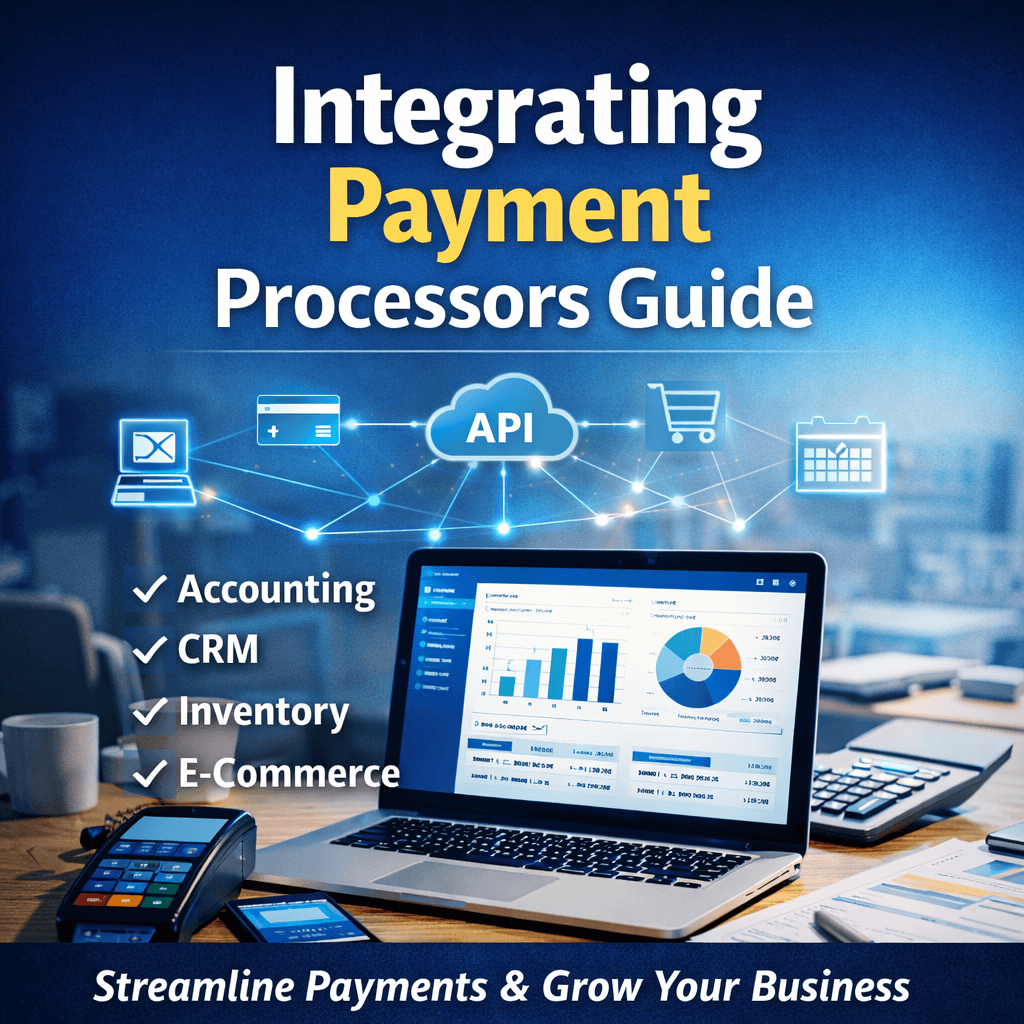Tax Planning for Online Entrepreneurs:
Maximize Deductions
Tax planning for online entrepreneurs involves strategically organizing your business structure, tracking deductible expenses, managing sales tax obligations, and timing income and expenses to minimize your overall tax liability while maintaining compliance. Done right, it can reduce your tax burden by 20-40% compared to entrepreneurs who simply file at year-end without planning. Research from the Minneapolis Federal Reserve shows self-employed workers earn 60% more on average than traditional employees—but with that income comes a substantial tax burden that demands strategic planning.
As someone who’s helped thousands of online business owners navigate their taxes over the past two decades, I can tell you this: the difference between a haphazard approach and a strategic one often comes down to one thing—knowing what you can deduct and when to deduct it. Most online entrepreneurs leave money on the table every single year, missing deductions they didn’t even know existed. This article will change that.

What is tax planning for online entrepreneurs and how do you get it right?
- Tax planning for online entrepreneurs is the practice of organizing your business finances strategically to minimize taxes, maximize deductions, and simplify filing
- It includes choosing the right business structure (LLC, S-corp, sole proprietorship) to save on self-employment taxes
- Strategic planning captures all deductions across multiple sales channels (marketplace, direct, international)
- Quarterly reviews and organized expense tracking prevent last-minute surprises and penalties
- Proactive planning positions you to take advantage of tax credits and income-timing strategies unavailable to reactive filers
Understanding Your Business Structure: How It Impacts Your Tax Bill
The most overlooked tax decision online entrepreneurs make is defaulting to a sole proprietorship without considering alternatives. Your business structure directly determines how much you’ll pay in self-employment taxes and income taxes—and the difference can be substantial. Let me show you exactly what I mean with real numbers.
- Sole proprietorships are easiest to set up but offer no liability protection and force you to pay self-employment taxes on all profits. If you’re earning $100,000 in net profit, that’s $14,130 in self-employment tax alone—before income tax even enters the picture.
- LLCs provide liability protection and flexibility in taxation. You can elect to be taxed as an S-corp and save on self-employment taxes if your profit exceeds $60,000 annually. The beauty of an LLC is that it grows with you—start simple, then elect S-corp status when the tax savings justify the additional complexity.
- S-corps require more administrative overhead but can save $4,000-$10,000+ annually in self-employment taxes for mid-six-figure businesses. Here’s a concrete example: A freelancer earning $100,000 who converts to an S-Corp and takes a $50,000 reasonable salary saves approximately $6,046 annually in self-employment taxes. That’s real money back in your pocket every year.
The hidden cost of staying solo
Consider this: 80% of self-employment income is earned by those making more than $100,000 per year. If you’re in that group—or heading there—every month you delay restructuring costs you hundreds in unnecessary taxes. The administrative burden of an S-corp (payroll, corporate minutes, separate tax return) pales in comparison to these savings.
Deductions You’re Probably Missing: A Comprehensive Guide
This is where most online entrepreneurs lose thousands in potential tax savings. The IRS allows businesses to deduct ordinary and necessary business expenses—and the list is longer than you might think. Let’s break down the deductions that slip through the cracks.
Technology and infrastructure: Your digital foundation
- Web hosting, domain registration, and website maintenance are 100% deductible. Every penny you spend keeping your online presence running counts. That includes your SSL certificates, CDN services, and backup solutions.
- Software subscriptions for CRM, email marketing, accounting software, and project management tools are fully deductible. Yes, that means your Canva Pro, ConvertKit, QuickBooks, and Asana subscriptions all reduce your taxable income.
- Internet and phone services get tricky. If you have a dedicated business line, it’s 100% deductible. For shared home internet, calculate your business-use percentage—if you work 40 hours weekly from home on a 50-hour internet plan, that’s 80% deductible.
Marketing and advertising: No limits here
There’s no percentage limitation on marketing deductions—100% of reasonable advertising expenses are deductible. This includes:
- SEO consultants and content writers
- Social media management and scheduling tools
- Email marketing platforms
- Paid advertising on Google, Facebook, TikTok
- Influencer partnerships and affiliate commissions
- Professional photography and videography for content
One client discovered she’d been missing $8,000 annually in marketing deductions simply because she didn’t realize influencer payments and content creation costs qualified.
The home office goldmine
If you use a dedicated space exclusively and regularly for business, you unlock significant deductions. Beyond the simplified $5 per square foot (up to $1,500), you can deduct a percentage of:
- Rent or mortgage interest
- Property taxes
- Utilities
- Home insurance
- Repairs and maintenance
For deeper strategies on maximizing this deduction, check out these freelancer tax deductions for a home office. The key is “exclusive use”—that spare bedroom doubling as storage doesn’t qualify unless it’s 100% business.
Equipment and technology: Immediate write-offs
Under Section 179, businesses can deduct up to $2,560,000 in equipment purchased in 2026 in the year it’s bought, rather than depreciating it over time. A $5,000 computer becomes a $5,000 deduction this year, not $1,000 annually for five years.
Bonus depreciation adds another layer—you can claim an additional 100% deduction on new or used equipment in the first year. For detailed guidance on maximizing these benefits, review these small business tax strategies like Section 179 and bonus depreciation.
Here’s what qualifies:
- Computers, tablets, smartphones
- Cameras and recording equipment
- Office furniture (yes, that standing desk counts)
- Software licenses
- Even vehicles if used primarily for business
Managing Sales Tax Across Multiple Channels: Stay Compliant, Stay Profitable
One of the biggest headaches for online entrepreneurs is navigating sales tax across different platforms and states. Get this wrong, and you could face significant penalties and back-tax liabilities. I’ve seen businesses hit with $50,000+ in back taxes because they didn’t understand economic nexus laws.
Multi-state sales tax reality check
Each state has unique sales tax rules, with “economic nexus” thresholds that trigger collection requirements. Once you hit $100,000 in sales or 200 transactions in many states, you must collect and remit sales tax—even without physical presence there.
Critical steps for compliance:
- Track sales by state monthly
- Register in states where you exceed thresholds
- Use automated tax software for rate calculations
- File returns on each state’s schedule (monthly, quarterly, or annually)
Marketplace facilitator laws: What Amazon handles (and what it doesn’t)
If you sell on Amazon, Etsy, or eBay, the marketplace typically handles sales tax collection due to marketplace facilitator laws. But here’s what trips people up:
- These laws vary by state
- They don’t cover your direct website sales
- International marketplaces may not comply
- You still need to track everything for income tax purposes
Keep separate records for marketplace and direct sales. One audit red flag is mismatched sales figures between your tax return and marketplace 1099s.
Stop overpaying the IRS. Let Complete Controller build a tax strategy that keeps more profit in your business.

Mastering Estimated Tax Payments: Your Cash Flow Lifeline
Here’s a sobering statistic: small business owners experience twice the income volatility of traditional employees, with median income drops of $10,000 when disruptions hit. That volatility makes quarterly tax planning essential—not optional.
The IRS operates on a pay-as-you-go system. As a self-employed business owner, you don’t have an employer withholding taxes from your paycheck—that responsibility is yours. Miss those estimated tax payments for entrepreneurs, and you’ll face penalties and interest.
The 30% rule that never fails
After two decades in this business, here’s my foolproof strategy: Set aside 30% of net profit monthly in a dedicated tax savings account. It’s slightly conservative, but come tax time, you’ll either have enough or enjoy a small refund. Never scramble for tax money again.
Quarterly due dates to calendar now:
- April 15 (Q1)
- June 15 (Q2)
- September 15 (Q3)
- January 15 (Q4)
Implementing the profit first method
The Profit First cash management system automates this process:
- Revenue hits your main account
- Automatically transfer percentages to separate accounts:
- 30% to taxes
- 20% to owner’s pay
- 5% to profit
- Remainder for operating expenses
This system removes the guesswork and ensures tax funds are always available. No more “borrowing” from tax savings for business expenses.
Building Your Tax-Deduction Tracking System
You can’t claim deductions you don’t have documented. The difference between a well-organized online entrepreneur and a stressed one often comes down to bookkeeping for online businesses. Let me share the system that’s saved my clients countless hours and thousands in recovered deductions.
Essential records that save you money
Maintain these year-round:
- Profit and loss statements (monthly is ideal, quarterly at minimum)
- Mileage logs with purpose, date, and distance
- Digital receipts for every business expense
- Bank statements reconciled monthly
- Invoice copies for all contractor payments
Cloud-based systems that work
Modern accounting software that integrates with your bank and payment processors (Stripe, PayPal, Square) transforms bookkeeping from a chore into a competitive advantage. Automatic categorization reduces manual entry by 80% and catches deductions you’d miss.
The quarterly review process:
- Reconcile all accounts
- Review uncategorized transactions
- Identify missed deduction opportunities
- Adjust estimated tax payments
- Plan upcoming purchases for maximum tax benefit
This proactive approach prevents year-end surprises and positions you to capture additional savings throughout the year.
Tax Credits and Incentives: Beyond Basic Deductions
While deductions reduce your taxable income, tax credits directly reduce the taxes you owe—making them even more valuable. The landscape just got better for online entrepreneurs.
The QBI deduction gets better in 2026
The Qualified Business Income deduction just became permanent, with major improvements. Starting in 2026, the OBBBA guarantees a minimum deduction of $400 for anyone with at least $1,000 in qualified business income. Even better? The phase-out thresholds increased, meaning more high-earning entrepreneurs qualify.
This isn’t just a temporary benefit anymore—it’s a permanent planning tool. For a business earning $150,000, this represents $30,000 in tax-free income annually.
Health insurance and retirement: Double benefits
Self-employed health insurance premiums are fully deductible—not subject to the 7.5% AGI limitation that employees face. A family plan costing $20,000 annually becomes a $20,000 deduction.
Solo 401(k) contributions offer massive deduction potential:
- Employee deferrals up to $23,500 for 2026
- Employer contributions up to 25% of compensation
- Combined maximum of $70,000 (or $77,500 if 50+)
These aren’t just tax deductions—they’re building your future while reducing today’s tax bill.
When Professional Guidance Pays for Itself
The question isn’t whether you can do your taxes yourself—it’s whether you should. For online entrepreneurs juggling multiple revenue streams, international sales, and complex deductions, the ROI of hiring a tax advisor for online business tax planning often exceeds 10:1.
Signs you need a tax professional yesterday
You need help if you:
- Gross over $100,000 annually
- Sell across state lines or internationally
- Have employees or multiple contractors
- Wonder about S-corp election timing
- Feel uncertain about any deduction’s legitimacy
- Want proactive planning, not just reactive filing
What expert guidance actually delivers
A skilled tax professional doesn’t just file forms—they transform your financial future. They identify overlooked deductions, optimize your business structure, ensure compliance across jurisdictions, and provide year-round strategic planning. Most importantly, they give you confidence that you’re maximizing every legitimate tax benefit while staying fully compliant.
Your Next Steps: From Knowledge to Action
Tax planning for online entrepreneurs isn’t a luxury—it’s a necessity. The difference between reactive filing and strategic planning easily reaches $10,000-$40,000+ annually, depending on your business size and structure. Every month you delay costs you real money.
From my experience at Complete Controller, I’ve seen online entrepreneurs transform their financial health by implementing just a few of these strategies. Start with your business structure—if you’re netting over $60,000 annually and still filing as a sole proprietor, you’re overpaying. Next, implement a bulletproof expense tracking system. Finally, set aside that 30% for taxes religiously.
Remember: the IRS doesn’t reward ignorance, but they do reward organization and strategic planning. Take control of your tax situation today, and watch how much more of your hard-earned revenue stays in your business. For more expert guidance from the team that pioneered cloud-based bookkeeping and controller services, visit Complete Controller.

Frequently Asked Questions About Tax Planning for Online Entrepreneurs
What’s the biggest tax mistake online entrepreneurs make?
Staying as a sole proprietor too long. Once you’re consistently earning $60,000+ in net profit, not electing S-corp status costs you thousands annually in unnecessary self-employment taxes. The second biggest mistake is poor record-keeping—missing legitimate deductions because you can’t document them.
How much should I really set aside for taxes as an online business owner?
Set aside 30% of net profit monthly into a dedicated tax account. This covers federal income tax, self-employment tax, and most state taxes. Yes, it might be slightly high for some, but it’s better to have a small surplus than scramble for tax payments. Adjust the percentage after your first full year based on actual liability.
Can I deduct my entire home internet bill if I work from home?
Only if you use it exclusively for business, which is rare. Most entrepreneurs should calculate business-use percentage based on hours. If you work 40 hours weekly from home and use internet 60 total hours weekly, deduct 67%. Keep a log for three months to establish your pattern, then apply that percentage consistently.
When does sales tax become my problem as an online seller?
The moment you exceed any state’s economic nexus threshold—typically $100,000 in sales or 200 transactions annually. This applies even if you only sell through your website. Marketplace sales (Amazon, Etsy) are usually handled by the platform, but track everything because you’re responsible for direct sales and any gaps in marketplace coverage.
Is quarterly estimated tax payment really necessary, or can I just pay annually?
Quarterly payments are legally required once you expect to owe $1,000+ in taxes for the year. Skip them, and you’ll face penalties and interest—even if you pay in full by April 15. The IRS wants their money as you earn it, not just at year-end. Missing payments also creates cash flow crunches that sink businesses.
Sources
- Complete Controller. Small Business Bookkeeping: 9 Tips and Tricks. https://www.completecontroller.com/small-business-bookkeeping-9-tips-and-tricks/
- Complete Controller. Maximizing Home Business Tax Benefits. https://www.completecontroller.com/maximizing-home-business-tax-benefits/
- Complete Controller. Tax Preparers: Roles & Qualifications. https://www.completecontroller.com/tax-preparers-roles-qualifications/
- IRS. Estimated Taxes. https://www.irs.gov/businesses/small-businesses-self-employed/estimated-taxes
- IRS. (2024). Publication 587: Business Use of Your Home. https://www.irs.gov/publications/p587
- IRS. (2024). Publication 946: How to Depreciate Property. https://www.irs.gov/publications/p946
- Minneapolis Federal Reserve. (2025). On the Nature of Entrepreneurship. Staff Report 670. Anmol Bhandari, Ellen McGrattan, Tobey Kass, Thomas May, and Evan Schulz. https://www.minneapolisfed.org/article/2025/tax-data-reveal-rewards-and-risks-of-self-employment
- Collective. (2026). LLC vs S Corp: The Difference and Tax Benefits. https://www.collective.com/blog/business-setup/llc-vs-s-corp-which-is-the-best-for-freelancers
- Chandler & Knowles CPAs. (2024). Affluent Business Client Case Study. https://www.chandlerknowlescpa.com/case-studies/affluent-business-client-case-study/
- CRI Advisors. (2025). Small Business Deductions and Limits You Need to Know in 2025: The OBBBA. https://www.criadv.com/insight/obbba-small-business-tax-relief-2026/
- Thomson Reuters. (2025). Qualified Business Income Deduction: Overview and FAQs. https://tax.thomsonreuters.com/en/glossary/qualified-business-income-deduction
- Consumer Financial Protection Bureau. (2024). The Financial Security of Small Business Owners: Evidence from the Making Ends Meet Survey. https://www.consumerfinance.gov/data-research/research-reports/the-financial-security-of-small-business-owners-evidence-from-the-making-ends-meet-survey/
- Section 179 Org. (2026). 2026 Section 179 Deduction: Limits, Phase-Outs & Examples. https://www.section179.org/section179deduction/
- Beacon Funding. (2026). Section 179 Deduction Limit for 2026. https://www.beaconfunding.com/blog/article/category/tax-deductions/section-179-deduction-limit-for-2026
 About Complete Controller® – America’s Bookkeeping Experts Complete Controller is the Nation’s Leader in virtual bookkeeping, providing service to businesses and households alike. Utilizing Complete Controller’s technology, clients gain access to a cloud platform where their QuickBooks™️ file, critical financial documents, and back-office tools are hosted in an efficient SSO environment. Complete Controller’s team of certified US-based accounting professionals provide bookkeeping, record storage, performance reporting, and controller services including training, cash-flow management, budgeting and forecasting, process and controls advisement, and bill-pay. With flat-rate service plans, Complete Controller is the most cost-effective expert accounting solution for business, family-office, trusts, and households of any size or complexity.
About Complete Controller® – America’s Bookkeeping Experts Complete Controller is the Nation’s Leader in virtual bookkeeping, providing service to businesses and households alike. Utilizing Complete Controller’s technology, clients gain access to a cloud platform where their QuickBooks™️ file, critical financial documents, and back-office tools are hosted in an efficient SSO environment. Complete Controller’s team of certified US-based accounting professionals provide bookkeeping, record storage, performance reporting, and controller services including training, cash-flow management, budgeting and forecasting, process and controls advisement, and bill-pay. With flat-rate service plans, Complete Controller is the most cost-effective expert accounting solution for business, family-office, trusts, and households of any size or complexity.
 Reviewed By:
Reviewed By:














